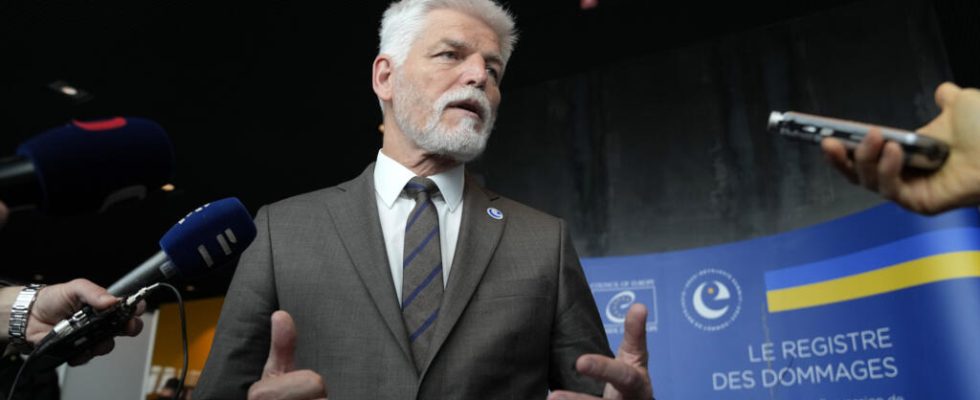Petr Pavel, the new president of the Czech Republic, said he was in favor of more surveillance of Russian citizens living in the West. Words that had to be clarified by his collaborators after the controversy generated.
With our correspondent in Prague, Alexis Rosenzweig
” When World War II began, the entire Japanese population living in the United States was also under a strict surveillance regime. It’s just the cost of war “, said Petr Pavel in an interview broadcast Thursday, June 15 by American radio Radio Free Europe.
It is this historical comparison that earned him the most criticism, the policy of repression and internment having affected very many Japanese or Americans of Japanese origin at the time.
Peter Pavel, the president of Czechia suggests that every Russian national living in the West should be ‘monitored’, ‘scrutinised’ and overseen by security services. Great. How about he starts from the family of Boris Obnosov, Putin’s chief missile advisor? They comfortably live… pic.twitter.com/q9RmTMEnAF
— Maria Pevchikh (@pevchikh) June 15, 2023
“ In no way did it refer to the possibility of internment or persecution of any kind. “, had to specify the spokesperson for the president, who underlines at the same time that Russia committed a terrorist act in 2014 in the Czech Republic, in reference to the ammunition warehouse blown up by explosions attributed to Russian services.
Former general and chairman of NATO’s military committee, the new head of state Petr Pavel quickly distanced himself from his pro-Russian predecessor, Milos Zeman, by advocating strong support for Ukraine and by going to Kiev a month after the start of his term.
On the side of the Russian opposition, the president of the Navalny foundation, Maria Pevchikh, points out that while monitoring Russian nationals is perhaps a good thing, it is also necessary to act against the interests of those close to the Kremlin, citing the case of the family of a Putin adviser with a luxurious real estate heritage in the Czech capital.
>> To read also: Czech Republic: Ukrainian child victim of harassment received by the president
